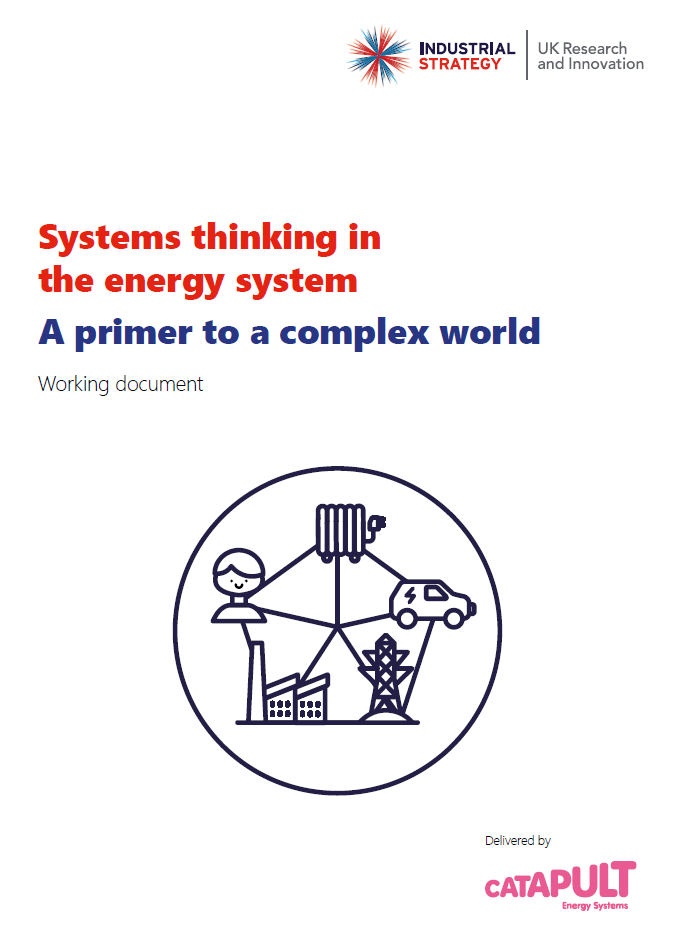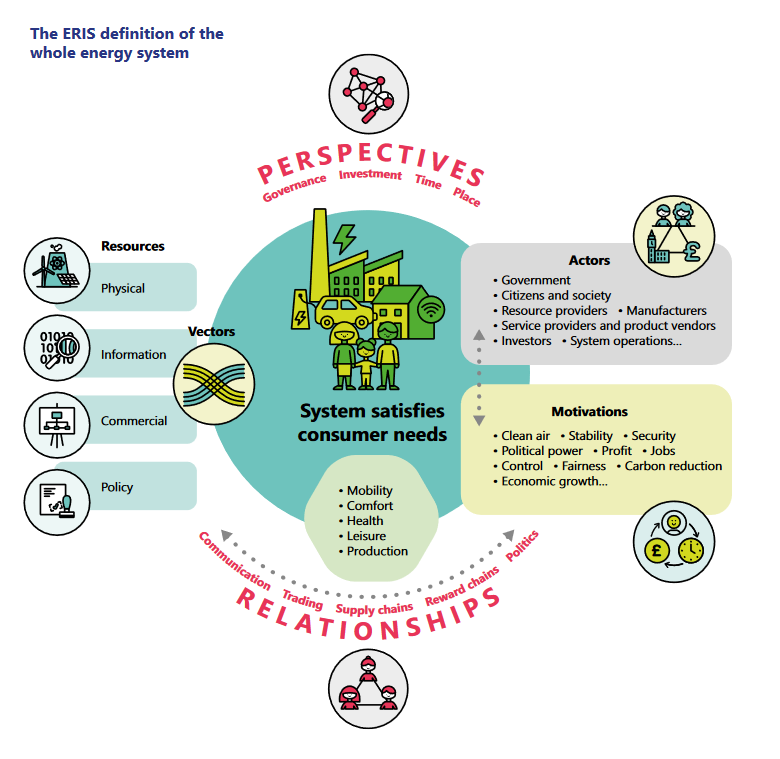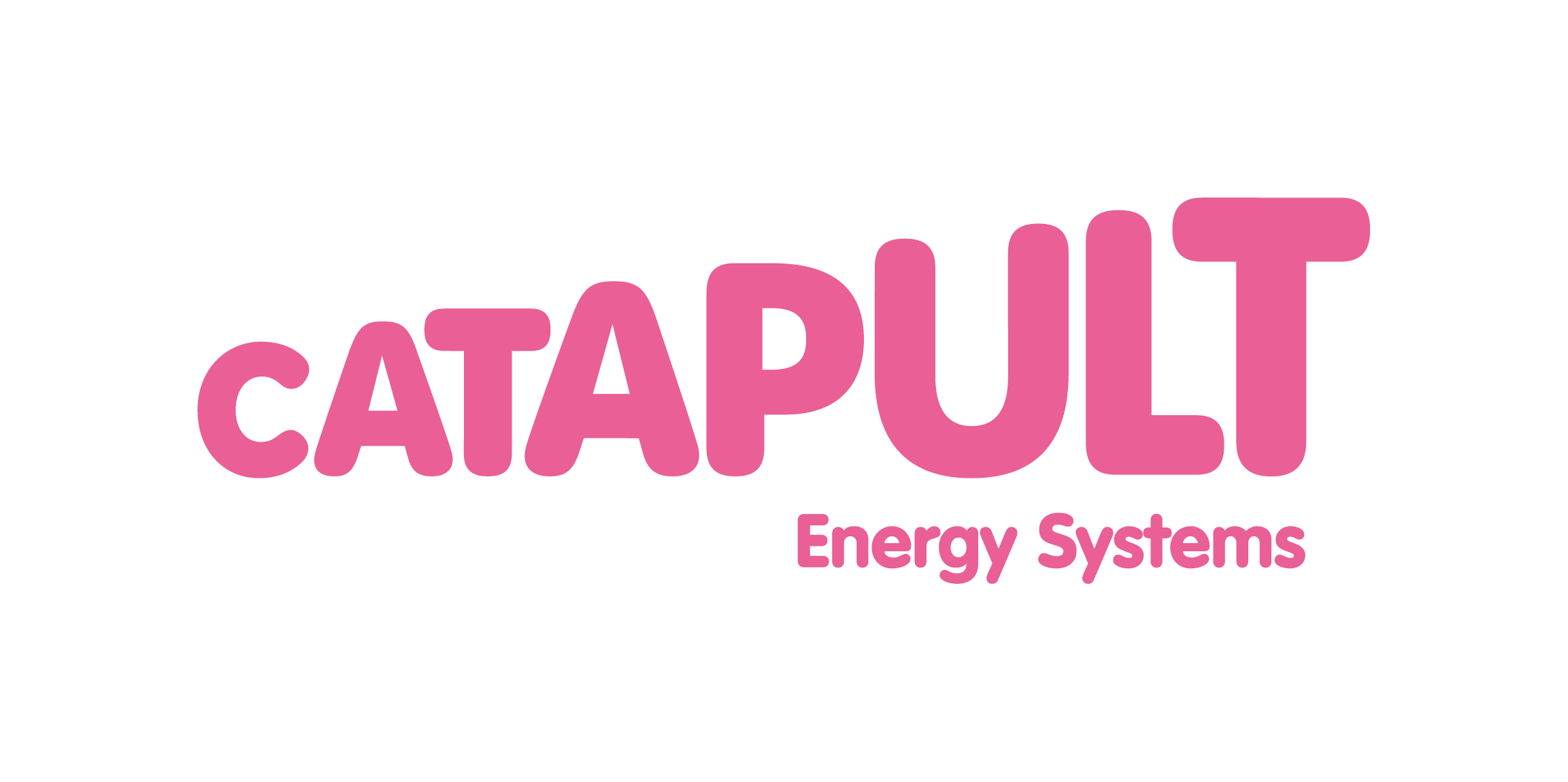This document describes what we mean by ‘systems thinking’ and why it is so centrally important to the energy revolution. It is intended to help stakeholders enter a systems thinking mindset and be able to communicate in systems thinking terms.
 Systems thinking is a broad and multi-disciplinary approach to complex problem solving. Energy Systems Catapult believes it is a vital component of the energy revolution because it offers a means to reduce the risk of unintended consequences when we modify things, while simultaneously providing the opportunity to deliver positive changes that satisfy requirements.
Systems thinking is a broad and multi-disciplinary approach to complex problem solving. Energy Systems Catapult believes it is a vital component of the energy revolution because it offers a means to reduce the risk of unintended consequences when we modify things, while simultaneously providing the opportunity to deliver positive changes that satisfy requirements.
This document describes what we mean by ‘systems thinking’ and why it is so centrally important to the energy revolution. It is intended to help stakeholders enter a ‘systems thinking’ mindset and be able to communicate in systems thinking terms. It is not intended as a methodology or a how-to guide. This is a working document.
Systems thinking is a broad discipline and the energy system is highly complex, with significant uncertainty about its future direction. It is difficult to predict how stakeholders need assisting materials to be presented, and with that in mind we are sharing this working document to gather feedback so that we may establish a common understanding of systems thinking in an energy context.
We have also included a working glossary to help define a standard language that will support and facilitate complex problem solving in the energy revolution.
Introduction
Over the coming decades, the UK energy system will need to undergo a challenging transition to meet agreed greenhouse gas emissions reduction targets. The complex nature of the energy system and how its various elements (heat, power, transport) interact mean that simple or gradual solutions won’t be sufficient to achieve the required outcomes. Whole-system thinking can help us uncover how changes in individual energy system elements, or the relationships between them, will affect wider system behaviour. Population growth, changing demographics, new and disruptive technologies, and changing patterns of energy use will affect our energy needs – the energy system will need to be flexible, efficient, and secure, to respond to future demands whilst meeting carbon targets.
The energy revolution
At the end of every pipe, road, and wire sits a consumer. That consumer may be a domestic customer or a large business. They want the energy system to deliver their needs, but not at just any cost, whether this is a financial or perceived environmental expense. If the energy sector doesn’t take consumer desires and behaviours into account at the outset of designing the UK’s energy future, the system may not perform as expected.
Digitalisation has transformed practically every aspect of life; consider how Amazon, eBay, Google, Facebook, Netflix, iPlayer, Airbnb, and Uber have changed shopping, working, relaxing, and travel. Yet until now, energy services have remained largely unchanged. Local markets for supplying energy services, and the increasing ability to understand and respond to consumer needs through digital platforms, are changing the way that people engage with energy. Electric vehicles, microgeneration, storage, and connected homes and businesses offer the opportunity to transform consumers’ relationships with the energy system.
To enable this positive evolution, legislation and commercial structures will need to adapt. In a system as complex as the energy system, changes to just one element can have profound effects on others. If changes don’t happen with an understanding of the whole system and how each element interacts, there is increased risk of a costly evolution, an unreliable system, and unsatisfied consumers.
By considering the whole system, opportunities can be created. For example, developments in one area, such as smart meters and their infrastructure, could lead to the ability to offer better consumer services and cost savings.
Systems thinking can help to grasp and manage complex situations where there are no simple answers and where solutions must be understood in terms of their impacts on the whole system. This document introduces systems thinking, explores its application in the energy system, and starts to develop a shared language for discussing whole energy systems thinking.

End of Preview

